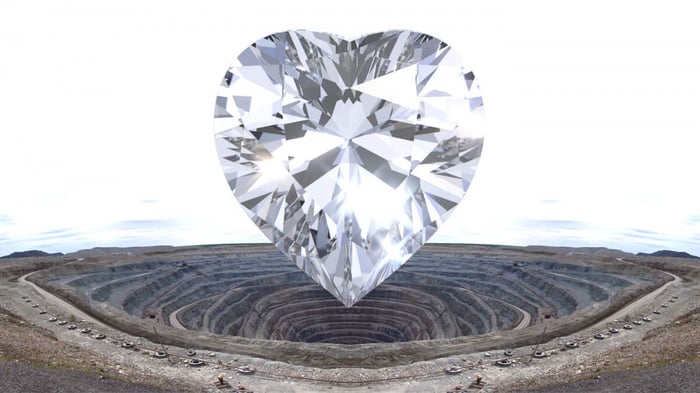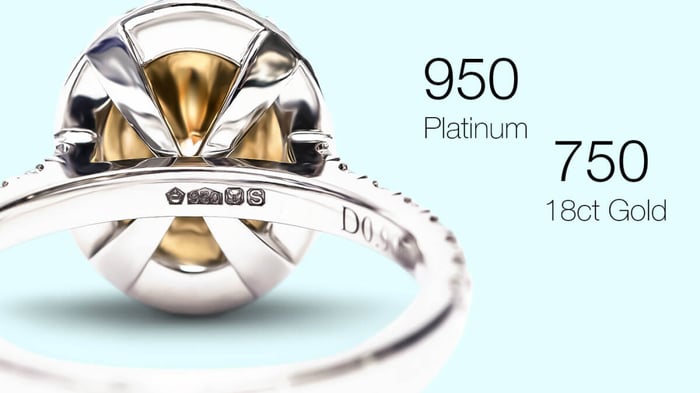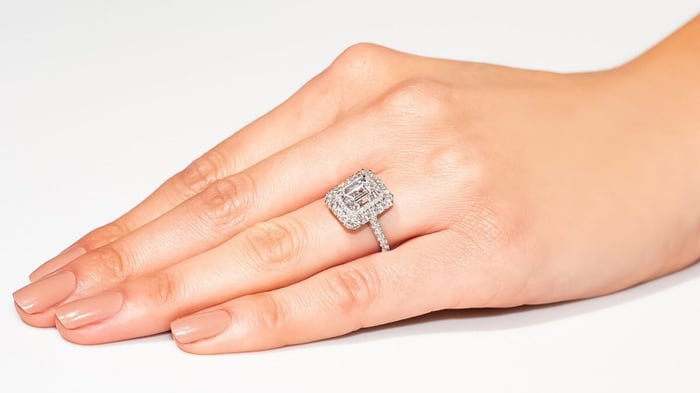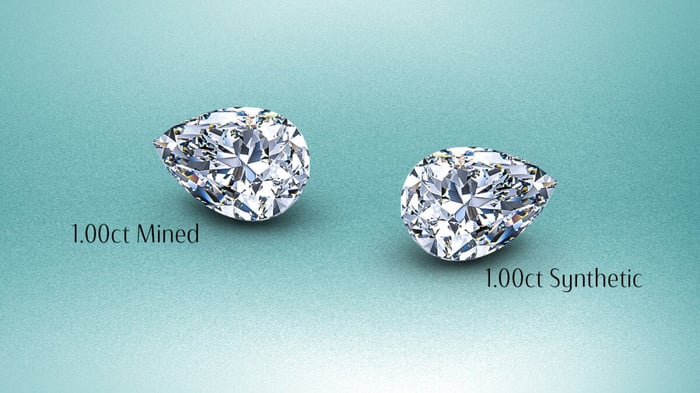Conflict-Free Diamonds And Ethical Diamond Jewellery
The world is changing; a few years ago, people did not think to buy conflict-free diamonds. When people wanted to buy diamonds or diamond jewellery, they did not think about the diamonds' source. There was not much interest in the way diamonds were produced. All we wanted to know about was the beauty of the jewellery and the price.
Today, we are all much more interested in how the products we buy are made, and its impact on the people involved both indirectly and indirectly. This concern for ethical production has driven the concept of ethical clothing manufacture, coffee and tea production, and diamonds. Retailers such as All Diamond are aware of this trend and take their part in leading the way toward ethical sourcing of the diamonds they sell.

The story of ethical diamond production is a long one with a complicated history. This article can only cover the surface of the issue. Still, it will give some context and help you choose ethical, conflict-free diamonds with a clear conscience.
What Are Ethical Diamonds?
The term 'ethical diamonds' is pretty broad. For most people, ethical diamonds have not been produced under harsh working conditions and forced labour. The gems' production proceeds must not be used to fund civil wars to line the pockets of warlords. This type of production was a large part of diamond mining in Africa. The terms blood or conflict diamonds used to be applied to diamonds produced in this way.
Today, ethical diamond production goes further than blood or conflict diamonds. It includes the conditions and rights of workers involved in the cutting and polishing of diamonds in countries far away from the African continent.
Ethical diamond production is about the entire chain of production, reaching from production to retail.
11 Stone Half Eternity Ring 0.40ct G/SI Diamonds in 18k Rose Gold

€913,95
Warm, lustrous 18k rose gold, handcrafted and UK hallmarked with pride. To this, we add eleven of the finest G/SI quality diamonds in a lifetime guaranteed setting that will twinkle and shine in the way that only diamond can. A… read more
Mining And Ethics – A Tough Mixture
Mining comes in two primary forms, deep earth mining and alluvial mining. Most diamonds are produced from a relatively small number of mines deep underground. These mines are industrial producers and require substantial investments from large companies; today, these deep earth mines are much improved in terms of workers' conditions.
Alluvial mining is much more of a problem for consumers wanting to make sure that their diamonds are ethically produced.

Alluvial mining is mining carried out at, or close to the earth's surface from ancient riverbeds and from land which used to be covered by the sea. This type of mining is hugely labour intensive, back-breaking work and can be both large and small scale. Where the alluvial mining is carried out by large corporations such as De Beers companies are expected to adhere to strict environmental and ethical standards.
Buyers can be reassured that mining and diamond production is ethical. The problem is with the large number of smaller operations where, in Africa alone, an estimated 1 million workers earn less than one dollar a day. These people live and work in conditions of extreme deprivation. Many of these miners are children working six or seven days a week, receiving no education and no hope of improving their lives.
Alluvial mining can also have a disastrous effect on the local environment. Topsoil is removed, leaving the land infertile. Mining pits fill with water becoming a breeding ground for insect-borne diseases, forests are cleared, fish are killed, and wildlife displaced. In the worst cases, the entire local ecosystem can be destroyed.
It is this informal mining that is the source of most non-ethical diamonds. 90% of all diamonds produced now come from large, regulated diamond mining companies, whether they are produced using alluvial or deep mining methods.
What Proportion Of Diamonds Are Ethically Produced?
The World Diamond Council (WDC) suggests that around 24% of the world's diamonds come from alluvial mining. Of that 24%, 10% are produced through large, legitimate, sources and 14% come from the troublesome smaller-scale informal diggings. The WDC represents the large industrial producers who might be expected to be somewhat optimistic. However, independent sources provide estimates that are close to this number.
Of course, not all diamonds produced by smaller, unregulated, operators are mined using non-ethical methods. The unregulated sector is the hardest to control where enforcement is weakest.
The Kimberley Process And Ethical Diamonds
In 2002 a coalition of governments, NGOs and the diamond industry came together to set up the Kimberley Process to eliminate the trade in conflict diamonds. This initiative came about due, in large part, to pressure from consumers who were beginning to avoid buying diamonds when they found out about the inhuman conditions under which many diamonds were produced.

The process is not perfect, but today, it is claimed that 99% of diamonds sold worldwide are free of associations with human rights violations and environmental degradation.
1.50ct Classic Claw Set Diamond Cross Pendant in 18K Yellow Gold

€3.381,95
Our glistening cross necklace features round diamonds set in yellow gold. This classic claw set diamond cross pendant has a total diamond weight of 1.50ct in G/SI quality. This brilliantly crafted necklace is a perfect finishing touch to a special… read more
What Is The Consumer's Responsibility For Ethical Diamonds?
The first thing is that it is good that you want to buy diamonds that are conflict-free and ethically produced. It was consumer pressure that forced the diamond industry to clean up its act. Without consumer outrage, the large diamond companies would probably have been content to buy and trade with blood diamonds and keep their workers in poverty while working in terrible conditions.
Secondly, there is no reason to expect that you should become an expert in the diamond industry's logistics and economics. All you want is diamond jewellery that you can wear and enjoy without a guilty conscience.
That said, there are some things that you can do to support the ethical diamond movement and have a clear conscience!
1) Only buy your diamonds or diamond jewellery from retailers who, like All Diamond, make a point of only selling diamond jewellery made with ethically sourced diamonds. Their buyers ensure that you are buying 'clean' diamonds from known sources with clear identification of the origins of the diamonds they use.
2) When you buy your diamond jewellery, you should always ensure that the diamonds have certificates. GIA, the leading diamond assessment and grading organisation will not accept for grading any rough or partial rough diamond that does not have accompanying papers showing that the diamond complies with regulations.
All Kimberley Process diamonds are conflict-free. Sadly, that does not guarantee that every diamond that GIA examines and grades is ethically produced. Once a diamond has been cut the requirement for this documentation ends, but it is a good start. The GIA has introduced the GIA Diamond Origin Report which gives information about the diamond through its journey from mine to a rough stone and ending with the cut diamond. Only buying diamonds with this report, or similar from other reputable diamond certification organisations is your single best safeguard.
3) Buy Canadian diamonds that carry the CanadaMark certification. Every CanadaMark diamond bears a laser inscription that identifies its source and, incidentally, shows the gem's weight before cutting.
4) Avoid buying second-hand jewellery without documentation because old diamonds were probably produced unethically in one way or another. There is no way to know the history of old jewellery or diamonds claimed to be old.
5) Avoid buying diamond jewellery that seems too good to be true or comes from a disreputable source. Doing this will help you avoid buying 'dirty' diamonds and protect you from scams and con tricks.
All Diamond has more information about ethical diamond and conflict diamonds in the Education section of our website.




